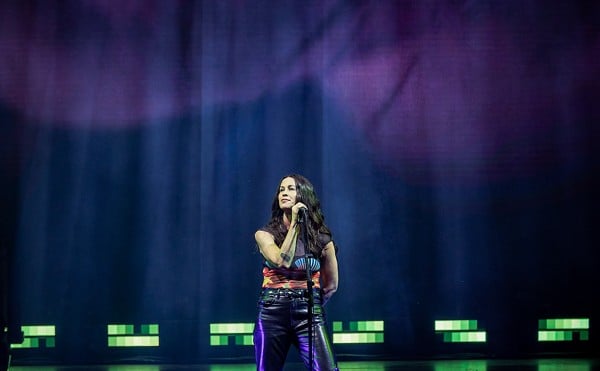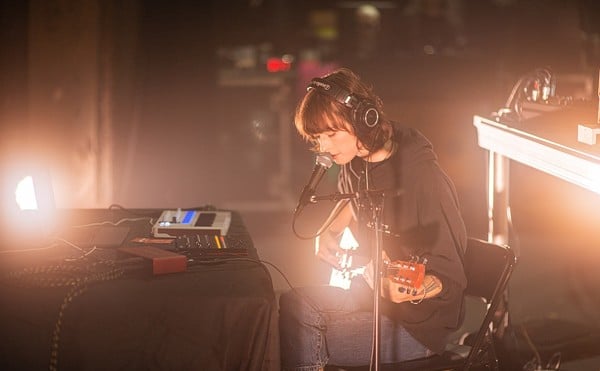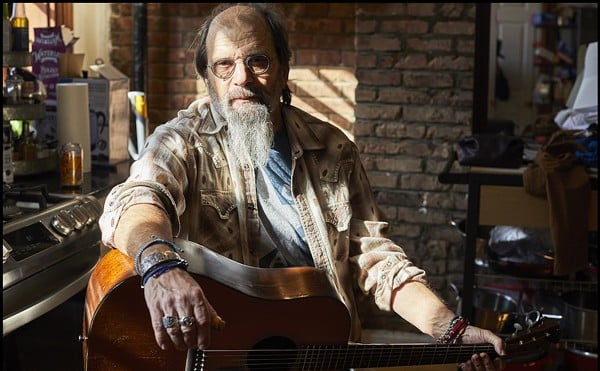|
Kohai has written a Rock opera, but I'm not sure they intended to or even realize they've done it. On their debut release, What We Are Waiting For, songwriter Shaun Henry filters experiences through the lens of Cincinnati's music scene with a single-mindedness that produces a strikingly cohesive work.
Starting with a vignette of a night in the Rock clubs, the album tackles chasing the girl, getting dumped, rebounding, introspection and submission. All the way, glimpses of narrative have you wondering what is analogy, what is autobiography and what is coming next.
The stories belong to Henry, but the music is a group effort. All four members of Kohai are foremost guitar players, which sounds like a gallon of gasoline and four lit matches, but is actually one of their greatest strengths. Because their talents and musical approaches vary, the band is more cohesive than most.
"We all teach and learn at the same time," says lead guitarist George Eninger, arguably the musical focus of the band. It was his playing that inspired both Henry and bassist Jake Evans to pursue the guitar as teens, although the childhood friends all diverged. Evans played with several heavy bands in Dayton, as did Eninger at Wright State University, before finding his voice in progressive, Blues-based Rock.
Meanwhile, Henry's involvement in the Cincinnati music scene encompassed not only playing as a solo act, but also organizing and promoting, including open mic nights at Cody's Café and the enduring Acoustic Artist Series. His songwriting and performance chops grew, as did his musical network. One person he met was Mark Szabo, a guitarist and percussionist who also happens to have a fantastic ear for composition and arrangement. Although he sits behind the kit, his influence on Kohai's songs stretches far beyond groove and tempo.
This unique combination of players first collaborated in 2004. Henry and Eninger had been writing and performing as an acoustic duo before then but, as Henry puts it, "we wrote songs with the concept of being a Rock band and having drums and bass." They assimilated Szabo easily, and were lamenting to Evans that they couldn't find a bassist when he surprised them by volunteering.
Their long-awaited album sounds refreshingly professional for having been recorded in Szabo's basement. Half of the album is flush with '90s Alt Rock influences, probably coming closest to Our Lady Peace's combination of heavy riffing and crisp lead playing. The other half is dark and edgy but sedate, more like Porno for Pyros' atmospheric adventures, all painted with Eninger's spooky guitar synth. Henry anchors the sound as an enigmatic singer.
Since Henry and Szabo are veterans of the local scene, and Eninger and Evans are relative newcomers, I couldn't resist asking how the scene has affected Kohai. Their answers are very telling. They could literally go on for hours about their peers, and their reverence is genuine.
Evans is impressed by the support network. "It's amazing how the musicians come out to see each other. In Dayton, if you're not playing out, you're in the basement."
The rest of the band is quick to identify their inspirations. Henry names Eric Diedrichs immediately. "He has really pushed us, not only to be better musicians, but to experience the threshold. He put us in front of a crowd when we needed it." He cites Whitney Barricklow (also Szabo's longtime bandmate and fiancé) as well. "I love the way she writes lyrics and melodies, and how she presents herself on stage, which is, 'Look at me! Look at me! I'm good!' Personally, I'm not quite there yet, but I can do the 'Look at me' part!"
Eninger has been impressed by Noctaluca ("I don't know anybody more in love with the art they're producing") and Szabo draws inspiration from Emily Strand ("She's had an impact on many songwriters in the area; she constantly reminds us to take what we're doing seriously").
Kohai's gratitude is the keystone of their existence, and proof that "what they are waiting for" has already arrived.
"The first track represents everything that we've lived and breathed and been involved in as musicians," explains Henry. "It's the answer to our problems, it's our salvation, it's called 'Brand New Scene' and it's what we have."
KOHAI (kohai.net) celebrates their new CD on Friday at Downtown's Viper Room.





